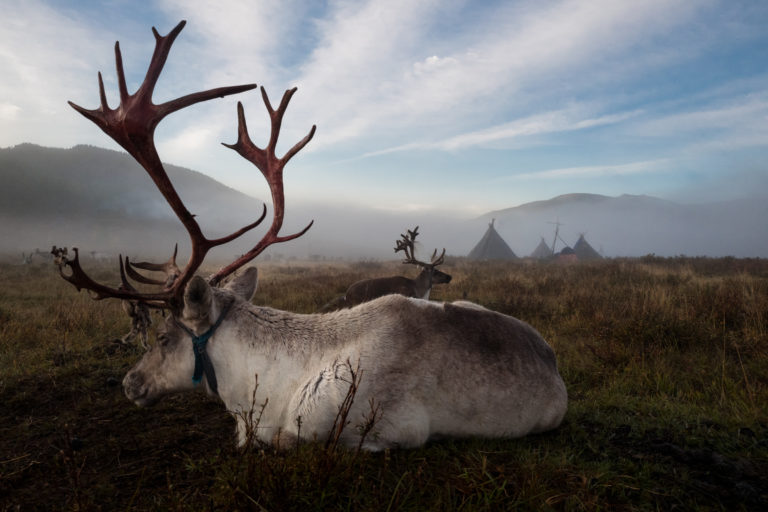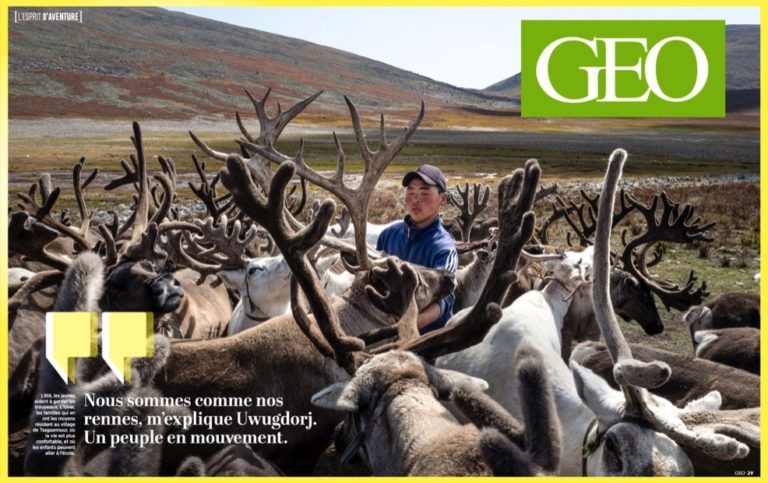The Dukhas

© Régis Defurnaux
The Dukhas
« The Dukha are reindeer herders. They are from a minority group living in forests and mountains between Mongolia and Russia. Their ancient nomadism was stopped in 1944 when the Russian-Mongolian border closed, separating many families. Their territory cut off – north of Lake Khövsgöl in Mongolia and south of Lake Baikal in Russia – is nevertheless made of the same landscapes of ice and snow, the same red bays and singing streams, wolves and bears, blinding lights, frozen fingers and burning fires. There is magic in their territories, there is a mix of freedom and vulnerability. It’s not a romantic world but it’s genuine and therefore wild. The course of the sun, the subterranean voices of the shamans and life with the herds are alike. But on one side of the border, the reindeer remained partners; on the other, they became winter boots sold all over neighbour countries. Oscillating between disappearance and transformation, this reindeer culture split between two countries is precipitated at great costs in the blind mechanisms of globalisation.
Dukha (whose exonym is tsaatan for Mongolians) are part of the “Tuvan” ethnic group. This is the last furthest East Turkish-speaking group wich makes them unique and isolated linguistically. Being animists, they underwent assimilation policies before becoming one of Mongolia’s tourist attraction pole. While they survive on subsidies to stem the rural exodus, recently deprived of the right to hunt and facing extravagant appetites from tourists, they nevertheless retain a relationship of partner with their reindeers. Endearing creatures, Christmas icons, these reindeer have an ancient symbiotic relationship with the nomads, even when they become sedentary. During the winter, the women stay in wooden houses in the nearest villages (like Tsagan Nuur) so children can attend school. The men stay in the high valleys and care for the animals in the isolation of winter.
These reindeer herders are hyper connected, directly concerned by the challenges of Mongolian society like the future of rurality, and affected by climate change which does not spare the taïga – in the summer 2019 and 2020, it was on fire. While they migrate their reindeers at every season, they are facing lots of challenges and issues affecting their identities and their daily lives. It’s about nature, social changes, incomes, transition and education. It’s about climate change steadily burning their animals and where they belong. It’s about staying themselves while suffering globalised consequences from another way of life. » From Where we belong also published in The New York Times and GEO Magazine by Regis Defurnaux.
Article in the New York Times with images and stories from our visit to Magsar and Ankhaa family.
16 page article in the Geo France n°519-May 2022 with images and stories from our visit to Magsar and Ankhaa family.


